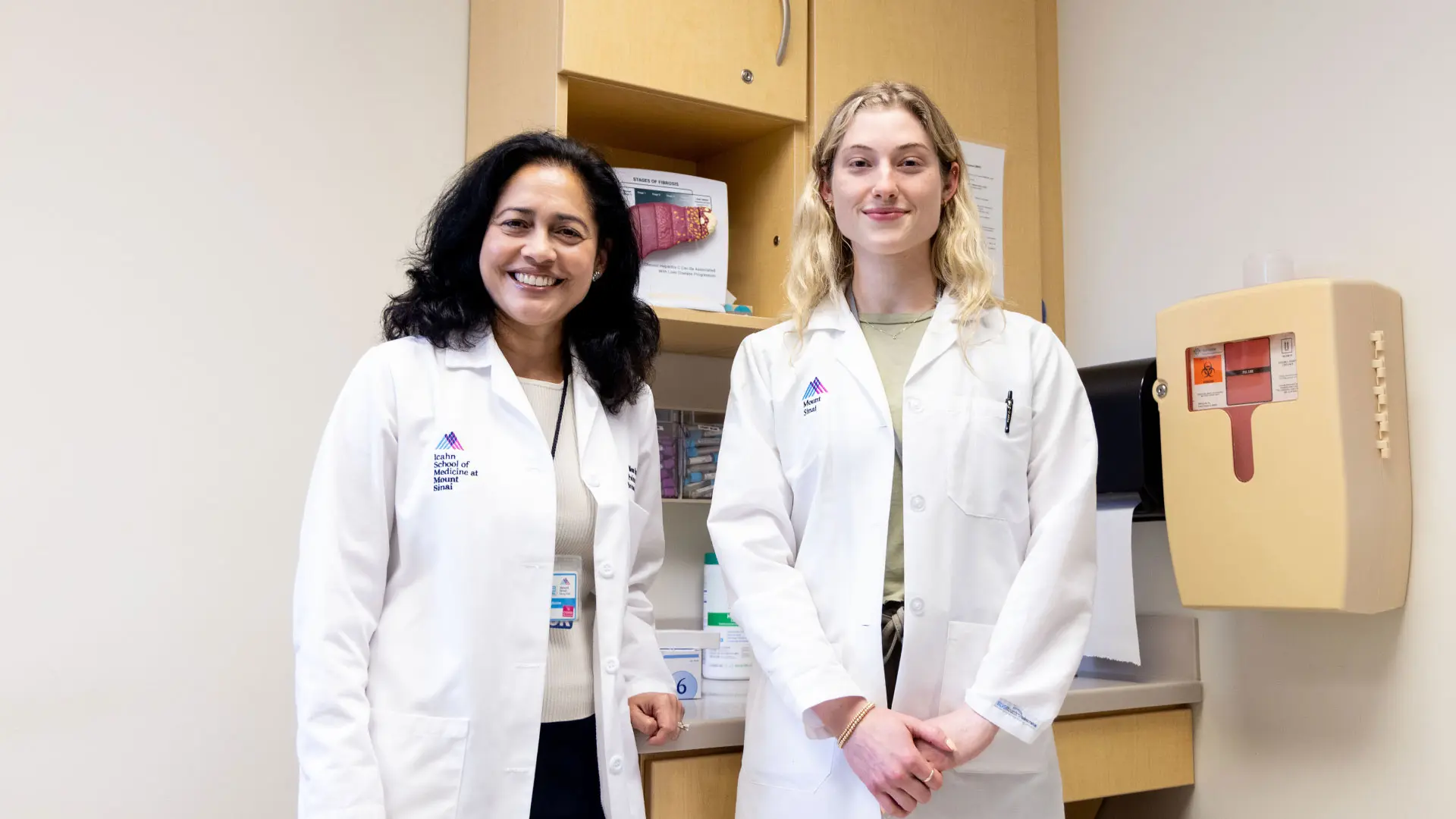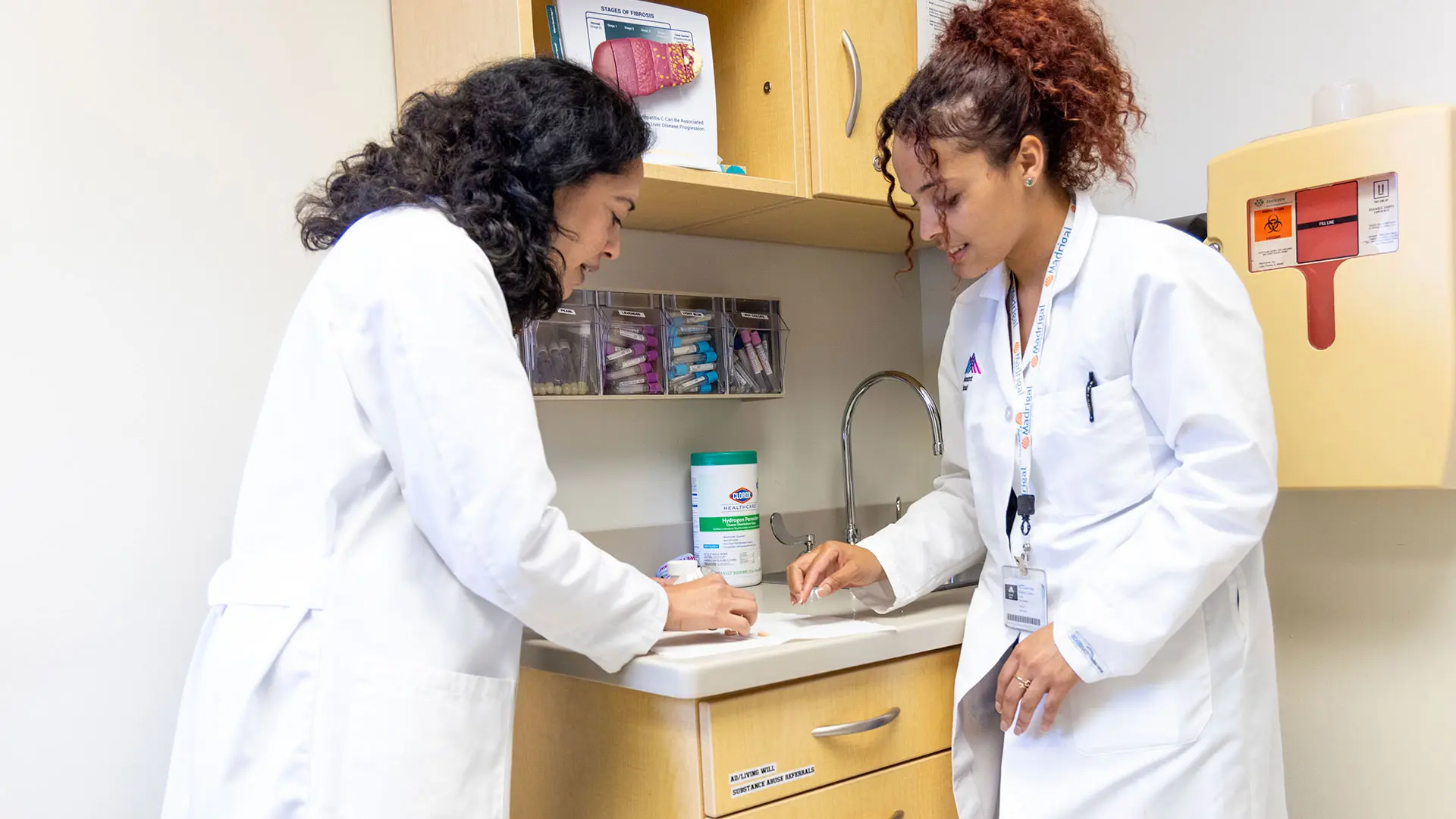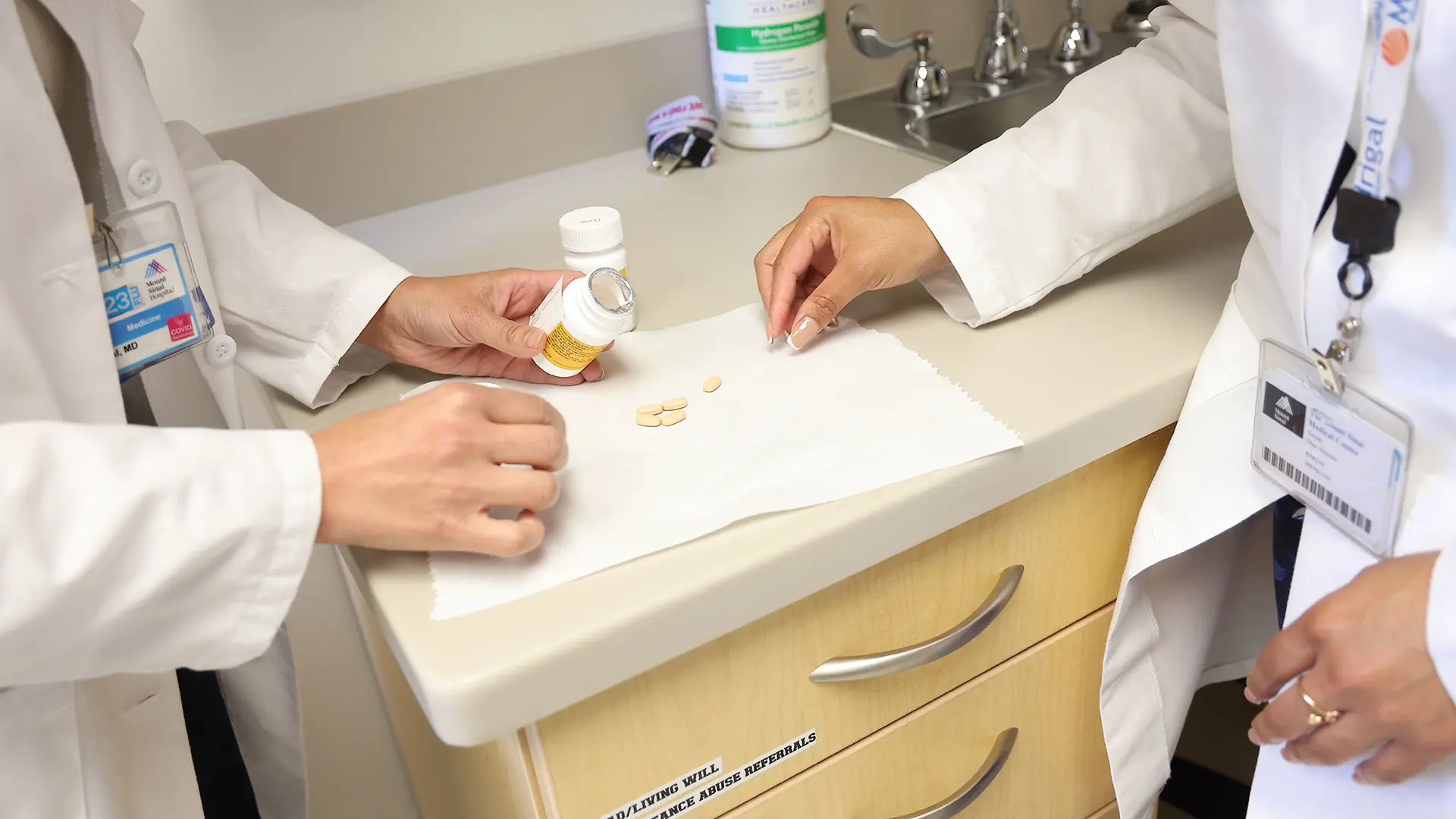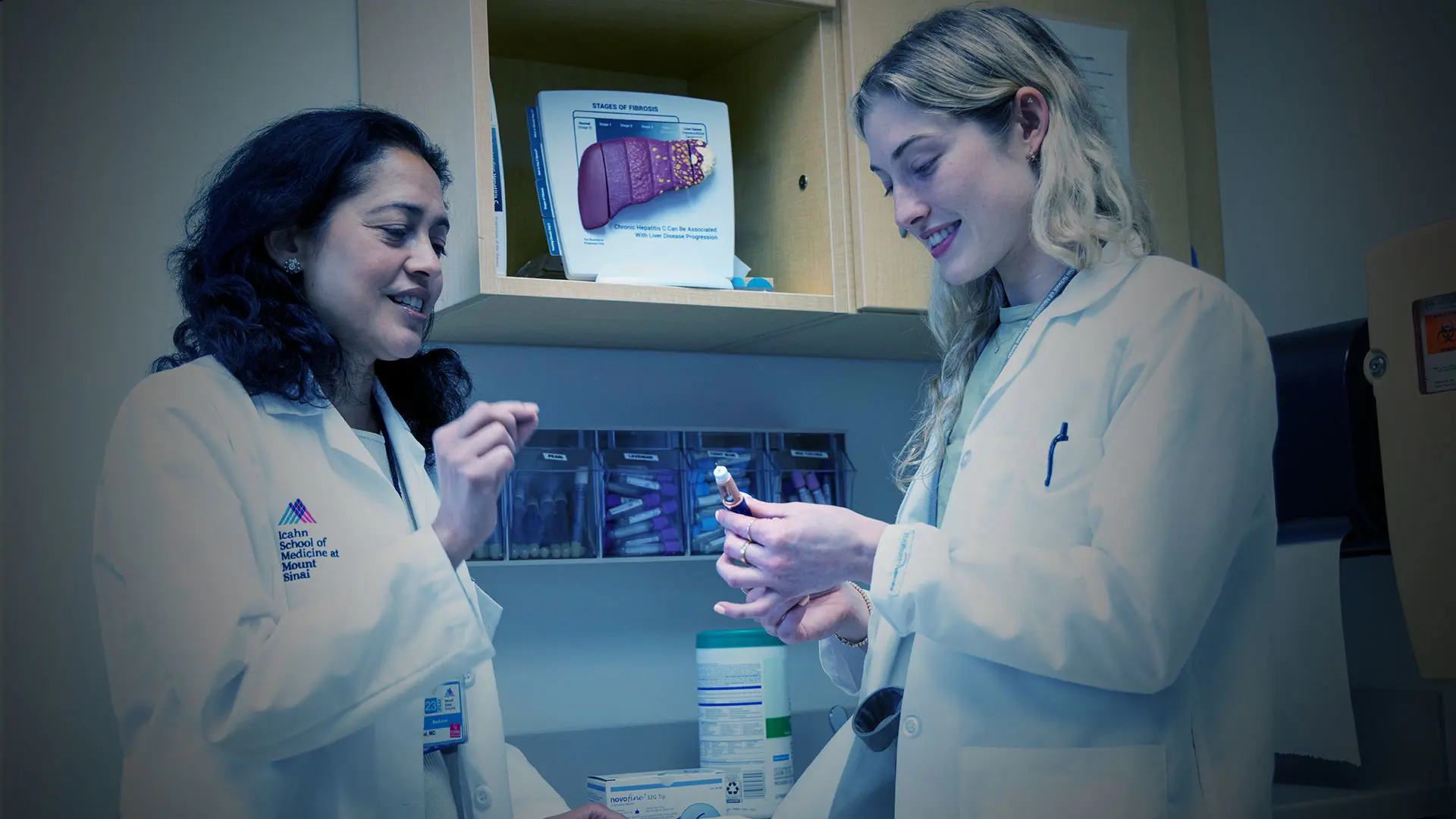Related Article
No drugs are currently approved by the Food and Drug Administration (FDA) for the treatment of metabolic dysfunction-associated steatohepatitis (MASH), formerly known as nonalcoholic steatohepatitis (NASH). But that may be about to change, thanks to work by Mount Sinai researchers who are conducting trials on a number of medications with different mechanisms of action against the growing threat.
Among the medications in trials for MASH are new drugs for treating diabetes and obesity that have been recently in the spotlight, says Meena Bansal, MD, Director of the MASLD/MASH Center of Excellence and Professor of Medicine (Liver Diseases) at the Icahn School of Medicine at Mount Sinai, and Chief of the Division of Liver Diseases for the Mount Sinai Health System.
“Both of those comorbidities are present in many people with MASH, and we know that if you lose 10 percent of your body weight, you can see improvement in MASH-related fibrosis,” Dr. Bansal says.
“We know that if you lose 10 percent of your body weight, you can see improvement in MASH-related fibrosis.”
- Meena Bansal, MD
Among the trials she and her team are running is a phase 3 trial involving semaglutide (sold under brand names that include Ozempic® and Wegovy®). A previous study published in 2021 in The New England Journal of Medicine found that patients treated with semaglutide experienced significantly more MASH resolution than those on placebo. But the secondary endpoint—improvement in fibrosis stage with no worsening of MASH—produced inconclusive results because of unusually high rates of response in the placebo group and overall small numbers.
The Mount Sinai trial, begun in 2022 and sponsored by the drug’s maker, Novo Nordisk, seeks to examine whether a weekly subcutaneous dose of 2.4 mg of semaglutide—the standard dose used for treating obesity—can improve either MASH or the degree of fibrosis, versus placebo, in patients with MASH and fibrosis stages 2 and 3 (F2 and F3).
The trial’s primary endpoint will be either MASH resolution without worsening of fibrosis, or at least a one-stage regression of fibrosis without worsening MASH. Patients will be assessed via biopsy at 72 weeks and will continue to be followed for a total of 240 weeks and assessed for clinical outcomes ranging from esophageal bleeding to liver transplant.

Meena Bansal, MD, with Elizabeth Peck, clinical research coordinator for the semaglutide trial.
The trial is one of eight at the MASH Center of Excellence that are currently seeking to enroll patients. Three of those trials involve resmetirom, a thyroid hormone receptor-β agonist; other drugs under investigation include lisinopril, an angiotensin-converting enzyme inhibitor, and lanifibranor, a pan-peroxisome proliferator–activated receptor agonist.
The resmetirom trials, for which Dr. Bansal is also the Principal Investigator, are exploring the hypothesis that metabolic dysfunction-associated steatotic liver disease (MASLD), formerly known as non-alcoholic fatty liver disease (NAFLD), is a result of relative intrahepatic hypothyroidism, and that increasing thyroid hormone signaling in the liver can lead to MASH resolution with no worsening of fibrosis, or at least a one-stage improvement in fibrosis with no worsening of MASH.
The initial phase 2 trial found that daily oral resmetirom resulted in a significant reduction in liver fat content at 12 and 36 weeks compared with placebo. Resmetirom responders with >30 percent magnetic resonance imaging proton density fat fraction (MRI-PDFF) reduction at week 12 had higher rates of MASH resolution (37 percent) on week 36 liver biopsy compared with nonresponders (4 percent), suggesting that early MRI-PDFF response could predict future histologic improvement. Resmetirom also positively affected patients’ lipid profiles by reducing blood levels of atherogenic lipids. Thus, it may reduce the incidence of cardiovascular disease, which is the leading cause of mortality in patients with MASH.
Recent topline data from the phase 3 trial looking at liver biopsies after 52 weeks of treatment suggests that resmetirom can cause both improvement of at least one stage in fibrosis and MASH resolution in a subset of patients. Based on these data, the sponsor, Madrigal Pharmaceuticals, received accelerated approval from the FDA for the drug in March 2024.

Dr. Bansal and Greidy M. Diaz Almonte, clinical research coordinator on the resmetirom trials.

Resmetirom, unlike some other drugs under investigation for efficacy against MASH, is an oral medication.
The ongoing studies at Mount Sinai are looking to see if continued therapy will ultimately improve liver-related outcomes.
A third drug, obeticholic acid (OCA), was furthest along in trials; however, an FDA advisory panel voted in May 2023 against accelerated approval of it to treat MASH and the FDA followed with a rejection of accelerated approval in June 2023, citing safety concerns. The decision came despite a trial, known as REGENERATE and led by Dr. Bansal as PI, that met its primary endpoint of an improvement in fibrosis by one stage without worsening of MASH. Based on this disappointing news, the drug's maker, Intercept Pharmaceuticals Inc., has decided to halt further development of this compound for MASH.
The wave of medications progressing through clinical trials marks a sea change for the treatment of MASH, Dr. Bansal says.
“It has been very challenging to get MASH therapeutics to market,” she says. “Early optimism was dashed by the failure of numerous trials. However, the promising data for these newer medications should make us optimistic that we will finally have effective treatments for this growing condition.”
Featured Faculty and Division Leadership

Meena Bansal, MD
Professor of Medicine (Liver Diseases); System Chief, Division of Liver Diseases
